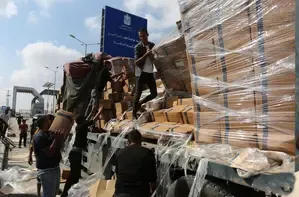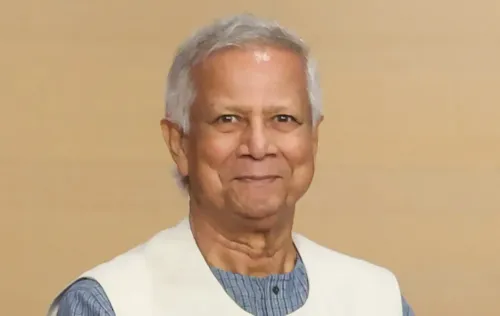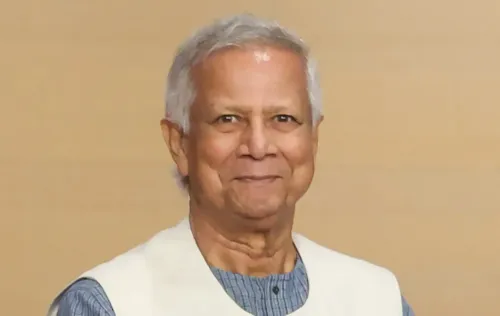UN Humanitarians Mobilizing Aid for Gazans, Evaluating Damage

Synopsis
Key Takeaways
- UN humanitarian teams are enhancing aid efforts in Gaza.
- Over 1,000 trucks have delivered aid since the ceasefire.
- Critical supplies for healthcare and safe childbirth are being distributed.
- Infrastructure repairs are underway for water and sanitation systems.
- Ongoing military operations in the West Bank are impacting safety.
United Nations, Jan 23 (NationPress) UN humanitarian teams and their collaborators are taking advantage of the ceasefire to enhance aid distribution and services for the people of Gaza, including conducting damage assessments for those returning to their homes only to discover rubble.
The UN Office for the Coordination of Humanitarian Affairs (OCHA) announced on Wednesday their efforts to bolster support for individuals across the Gaza Strip, increasing the influx of supplies and deliveries, as well as enhancing storage capacity, repair initiatives, life-saving services, and needs. They are distributing food parcels and flour and working to reopen bakeries, as reported by the Xinhua news agency.
Farhan Haq, the deputy spokesman for UN Secretary-General Antonio Guterres, informed reporters during a regular briefing about the UN system's initiatives to assist those in the severely affected Gaza Strip.
"One of the key roles of the United Nations in conflict zones and post-conflict scenarios is to address issues related to rubble removal, demining, and the clearing of unexploded ordnance and rebuilding efforts," Haq stated. "These operations are managed by various groups, including the Mine Action Service, the UN Office for Project Services, and the UN Development Programme."
Haq emphasized that this process would take time, stating, "We are still in the early days, and we are currently in the initial phase, which primarily involves assessment."
The UN Relief Agency for Palestinian Refugees (UNRWA) reported that nearly 1,000 trucks entered Gaza on the second day of the ceasefire. Approximately 118 aid trucks delivered over 53,000 food parcels to communities in Khan Younis and to UNRWA shelters in Deir al Balah.
The UN Population Fund (UNFPA) reported that 20 trucks delivered essential supplies, including items for safe childbirth, emergency obstetric care, postpartum kits, contraceptives, and winter supplies to Deir al Balah on Tuesday, with another 20 trucks carrying UNFPA aid entering northern Gaza on Wednesday.
The UN Office for Project Services provided fuel to ensure that critical services such as healthcare, water pumping, and desalination can operate using backup generators in the absence of electricity.
OCHA mentioned that the UN and its partners are also facilitating infrastructure repairs, including to water wells and desalination facilities.
"Humanitarian partners are conducting rapid assessments in newly accessible regions to determine the most urgent needs of the population, including water, hygiene, sanitation, and healthcare," OCHA stated. "They are also enhancing disease surveillance efforts."
The office reported that humanitarian teams are establishing trauma stabilization points to manage emergency situations and mobilizing specialized care teams.
The volume of aid entering Gaza since the ceasefire stands in stark contrast to the severe shortages of provisions allowed before the ceasefire, particularly in the northern governorates.
The extent of destruction has made neighborhoods unrecognizable.
In the West Bank, OCHA cautioned that ongoing operations by Israeli forces in Jenin are jeopardizing people's safety and welfare while dismantling crucial infrastructure such as roads, electricity, and water pipelines. Reports indicate that ten individuals have been killed, with many more injured.
The military operation, which commenced on Tuesday, involved air strikes and other aggressive tactics that OCHA claims appear to surpass law enforcement standards. The office has received reports of increased displacement from the Jenin camp due to the ongoing Israeli operation and water shortages.
OCHA reported that the Jenin Government Hospital had been disconnected from water and electricity supplies, relying on dwindling water reserves from emergency tanks installed just weeks ago as a precaution through an allocation by the OCHA-managed Occupied Palestinian Territory Humanitarian Fund.
The office indicated that humanitarian partners plan to replenish water and restore full reserves at the hospital as soon as security conditions permit.









